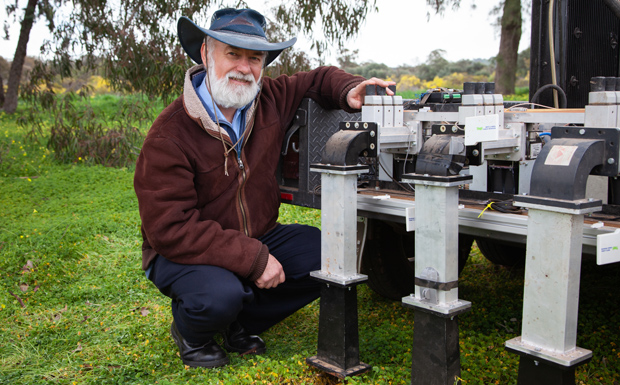
October 4, 2019
The University of Melbourne is tackling herbicide resistance with microwaves thanks to a device invented by Dr Graham Brodie from the Faculty of Agriculture and Veterinary Sciences.
Herbicide resistance means that a growing number of herbicides are becoming less effective in weed management and certain species of weed have become more tolerant.
Harnessing the power of microwaves to zap and kill weeds has the potential to be an effective and more environmentally friendly means for farmers to protect their crops.
The microwaves work in a remarkably simple way.
As the water molecules within the weed vibrate and heat up, they cause the plant cell walls to rupture, killing the weed without the need to use expensive or potentially harmful chemicals.
The technology will be commercialised by Growave Pty Ltd, following investment from IP Group and the Artesian/GRDC GrainInnovate Fund.
Dr Brodie has spent the past five years developing a microwave antenna that allows the microwave energy to be delivered precisely and efficiently, keeping energy consumption to a minimum.
“The modular design of the technology means Growave can be integrated into existing farming operations, not only reducing or eliminating the need for herbicides, but also saving labour associated with weed management,” he said.
“It can be mounted on to a tractor or trailer, and used in wet or windy weather, unlike herbicides and soil fumigation.
“As no chemicals are used, treated crops and fields do not require isolation.”






















